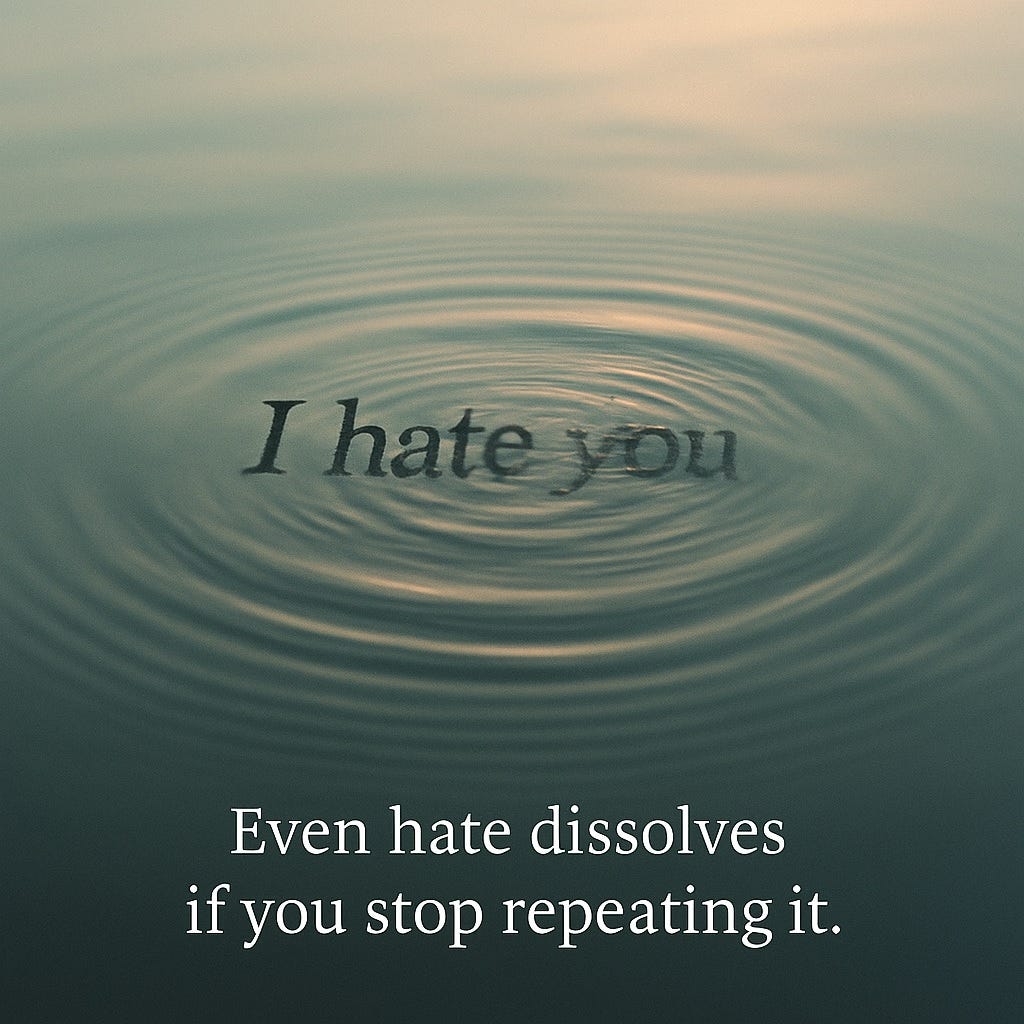Hate
A reflection on how we weaponize words—and how we can choose better ones.
We speak of hate like it’s something out there, something owned by others, wielded by the worst of us. But it slips into our own mouths more often than we notice.
“I hate that guy.”
“They’re just evil.”
We say these things casually, even righteously, never stopping to ask what kind of seeds we’re planting when we do.
This isn’t a lecture. It’s a reflectio…




